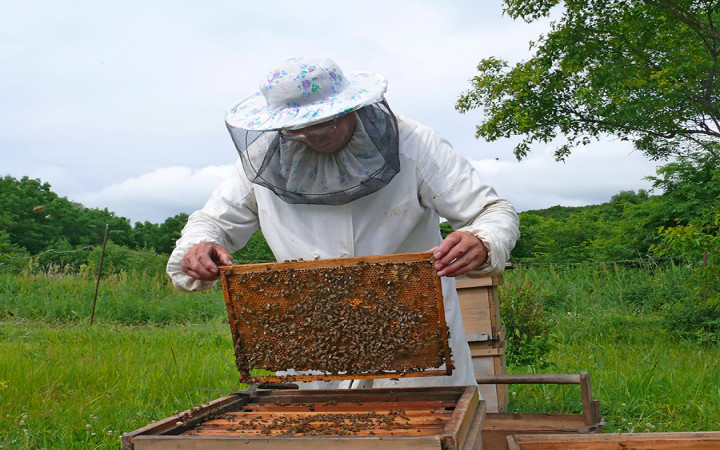Buzzing bees are a delight to watch on beautiful spring and summer days. As they travel from flower to flower, pollinating and enjoying their work, bees seem to float on the air.
In their natural environment, bees live in hives and produce lots of sweet honey. It would be hard to go from tree to tree, though, to collect all the honey that we eat and use in all sorts of recipes. Instead, some people choose to keep bees in special hives to produce honey year-round.
Who are we talking about? Beekeepers, of course! They're the people you often see in funny-looking suits and masks. Why do they wear them? They're one good way of preventing getting stung by bees.
Yes, beekeepers do get stung by bees. It's only natural. If you spend as much time around bees as beekeepers do, stings are inevitable. It's just part of the risk that goes along with the rewards of keeping bees.
How often a beekeeper gets stung depends on how many and what types of bees are being kept. It also depends on individual skill and practice. The more experienced a beekeeper becomes, the fewer stings are likely to occur.
In addition to learning what types of behavior bother the bees — and avoiding such behavior — the best protection against bee stings is to wear protective gear. This can include a veil or mask, or a protective bee suit.
Although bee stings can hurt, they tend to hurt less over time the more you get stung. This is because the body can build up a tolerance to bee venom. Some brave beekeepers actually allow themselves to be stung purposefully several times each season, so that their bodies will build up a tolerance and make any subsequent stings less painful!
Beekeepers also use other strategies to avoid stings. For example, avoid working with bees on cold, cloudy, and windy days. These conditions tend to make bees more agitated and may lead to a greater chance of being stung.
Beekeepers also often use smokers when working with bees. A little smoke around the hive helps to calm the bees and make them less active. When they're calm and docile, bees are much less likely to sting.




